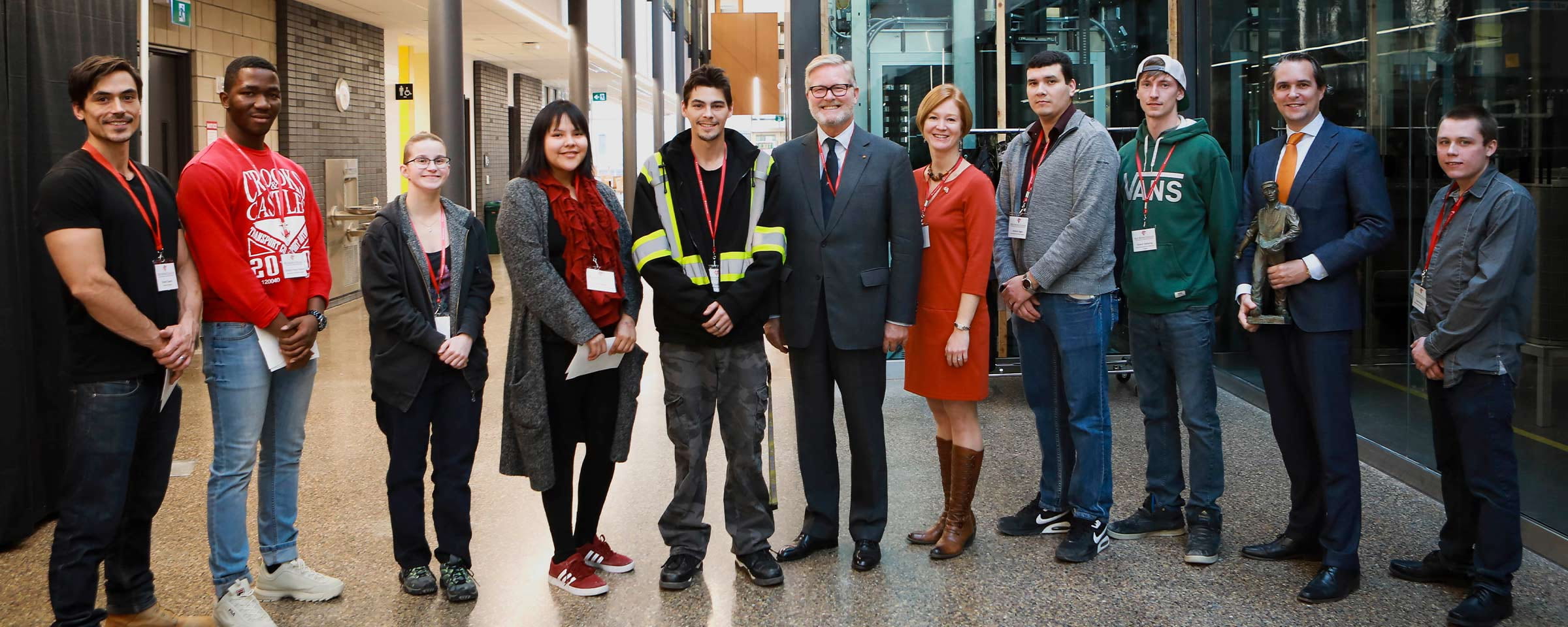Bridging the cybersecurity workforce/skills gap
Fortinet donates $150,000 to RRC Polytech information security program
As cyberattacks continue to make headlines around the world, a global leader in cybersecurity solutions is fighting back – by supporting Red River College Polytechnic’s (RRC Polytech) security program with state-of-the-art equipment and technology.
Fortinet provides cybersecurity solutions to some of the world’s largest enterprises, service providers, and government organizations. This month, the firm stepped forward with a $150,000 donation to RRC Polytech that will place tomorrow’s cybersecurity professionals at the leading edge.
A long-time partner of RRC Polytech, the company is investing most of its donation into the Fortinet Information Security Classroom, a state-of-the-art new facility located on the third floor of Manitou a bi Bii daazigae (formerly known as the Innovation Centre).
“It’s critical for information security students to gain direct, hands-on experience working with equipment they’ll be using throughout their careers to fight the increasing global cyber threat,” says Rob Rashotte, vice-president of Fortinet’s NSE (Network Security Expert) Training Institute.
But the rise in cyberattacks is only part of the problem. The war is now being waged on the home front as well, thanks to the growing number of employees working from home offices.

“Businesses of all shapes and sizes are coming to recognize the impact of cybersecurity on their operations,” says Rashotte. “The threat landscape keeps changing, which places huge demands on IT departments who are now having to act as cybersecurity operations. The problem is, there simply aren’t enough people working in cybersecurity to meet the growing size and complexity of the challenges we face.”
Fortinet has ambitious plans to fill these skills and workforce gaps. In addition to expanding its public awareness and outreach efforts, the company recently pledged to train one million people in cybersecurity over the next five years. Fortinet already supports educational institutions worldwide through a variety of programs, and by providing institutions with access to its NSE Certification Program content.
“Investing in programs at post-secondary institutions like RRC Polytech helps us achieve our mutual goals even faster,” says Al Nasturzio, the NSE Training Institute’s director of programs and partnerships. “It takes time to develop new programs and adapt old ones to current realities. RRC Polytech is already doing that work, and doing it well. Our investment will enhance RRC Polytech’s proven expertise in delivering applied, hands-on training by providing access to our equipment, as well as to career development opportunities.”
Fortinet’s Security Academy Program bridges the gap between learning and careers through access to industry-recognized training and certification courses. The Security Academy Program collaborates with higher education institutions and schools around the world to help learners become skilled cybersecurity professionals.
That includes veterans, women and minorities, who often don’t think of cybersecurity when considering careers, or encounter barriers to accessing the training they need to pursue such a career. According to one study, for instance, women make up approximately 25 per cent of the cybersecurity workforce while minorities make up only 26 per cent.
Melonia da Gama, Fortinet’s director of marketing for the NSE Training Institute, says partnering with RRC Polytech will boost the company’s ability to attract more people from under-represented groups.
“RRC Polytech is already doing so much to reach women and minorities by removing barriers and enhancing access to its programs. That helps us close the workforce gap while ensuring tomorrow’s workforce reflects the full diversity of the communities we serve.”

